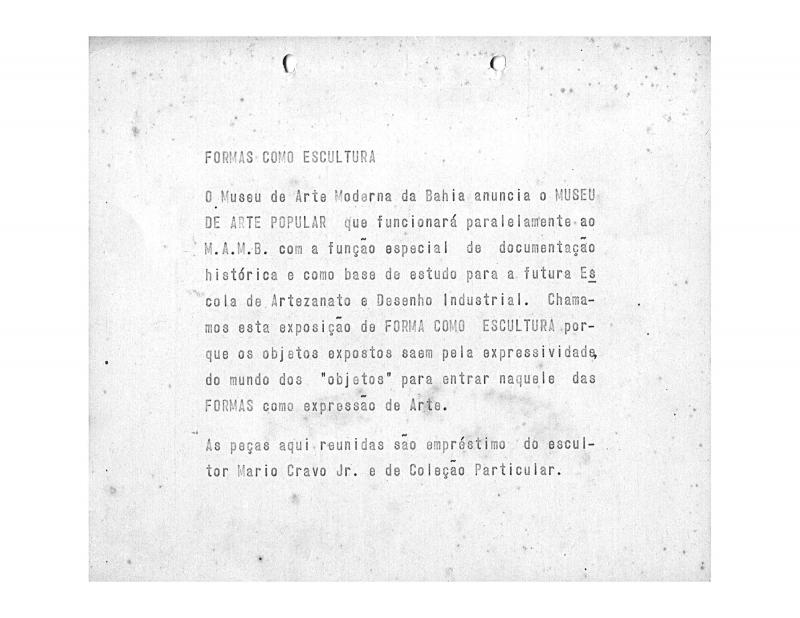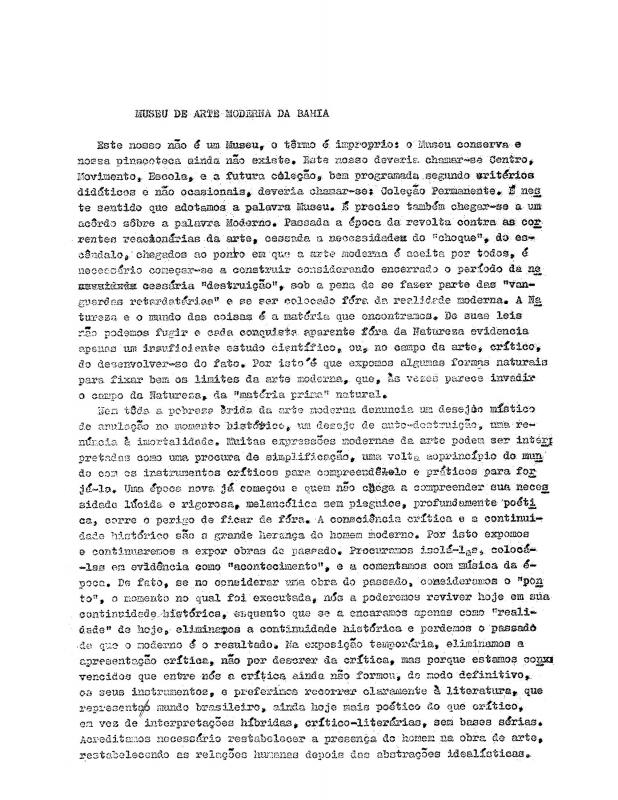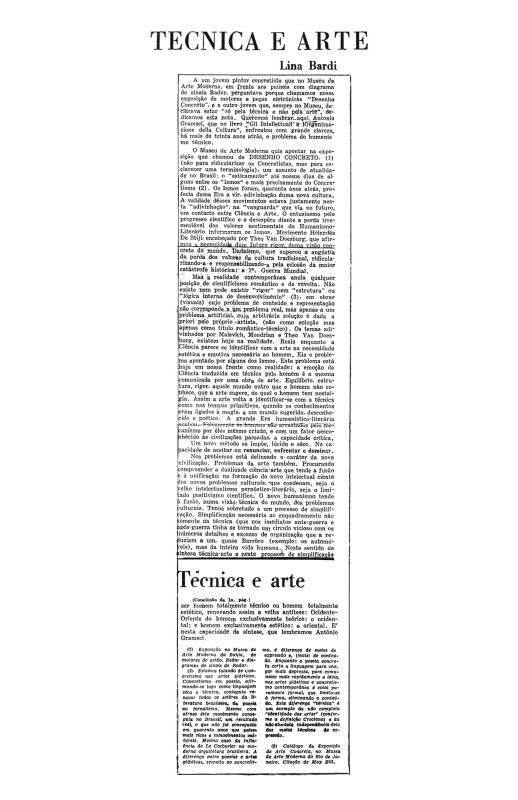The architect Lina Bo Bardi (née Achillina Bo, 1914–92) left Italy after the war and in the early 1950s settled in Brazil with her husband, the art dealerPietro Maria Bardi (1900–99) who, with the businessman Assis Chateaubriand, proposed creating an art museum, the MASP (Museu de Arte de São Paulo). Bo Bardi took charge of Habitat, the art magazine of MASP. The following year, in 1951, she and her husband started the industrial design course at the Institute of Contemporary Art, IAC (Instituto de Arte Contemporânea), where she worked as a teacher. She lived in Salvador (Bahia) from 1959 to 1964, where she was the director of the MAMB. As had happened at the MASP in São Paulo—where she was in charge of program planning and teaching activities—her work at the MAMB consisted of organizing art historical exhibitions and shows for contemporary and international artists representing various movements, and reevaluating the traditional culture of the Brazilian “northeast.” Bo Bardi organized regular classes on art, music, cinema, and theater, and arranged for design and local handcraft workshops. She was a dynamic force in the art field in that part of the country, and helped local artists to make contact with well-known figures in the contemporary arts community. The Museu de Arte Popular opened in 1963, and housed works from different parts of the country. The military coup that overthrew the government the following year put an end to museum projects of that nature. On this subject, see articles by Bo Bardi, such as: “Formas como escultura” [doc. no. 1110858]; “Museu de Arte Moderna da Bahia” [doc. no. 1110860]; and “Técnica e arte” [doc. no. 1110861].
Lina Bo Bardi founded the MAMB in Salvador (Bahia) and was the director of the museum from 1960 to 1964. Her work was the subject of discussion among Salvador’s avant-garde in the 1960s when artists of the stature of Glauber Rocha (cinema) and Caetano Veloso (music) began to emerge. Under her influence, the museum became a cultural center that promoted the contemporary art movement and the traditional culture of the “northeastern” part of the country. According to her, bringing those different worlds together would create a new form of “civilization.” On her watch, MAMB became a space that welcomed new artists and was in a constant state of transformation. The political and cultural upheaval of that period gradually took its toll on museum activities. After the fascist military coup (that lasted over two decades), Bo Bardi was accused of “subversion.” She was relieved of her position, and the museum and industrial design school project were abandoned to their fate.



